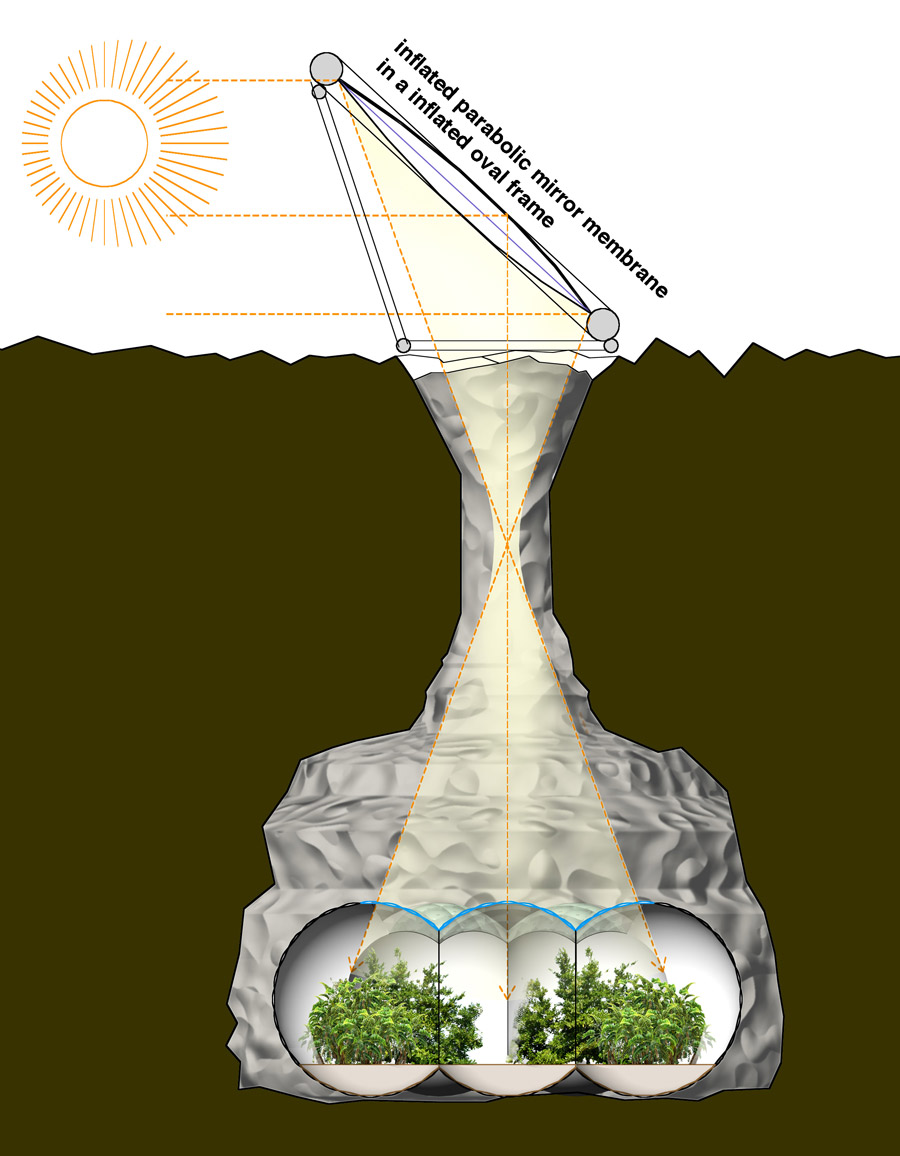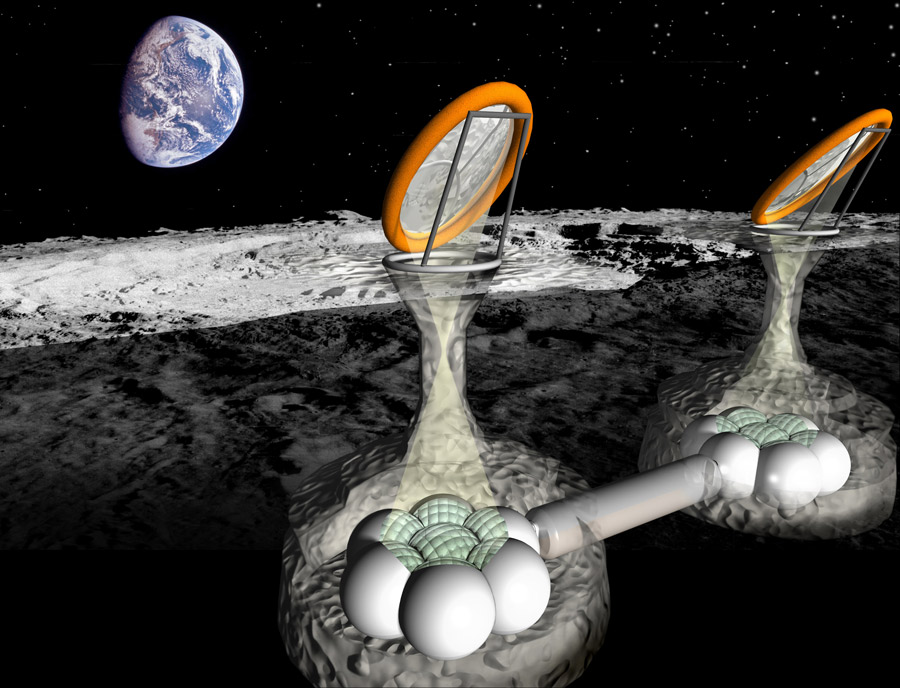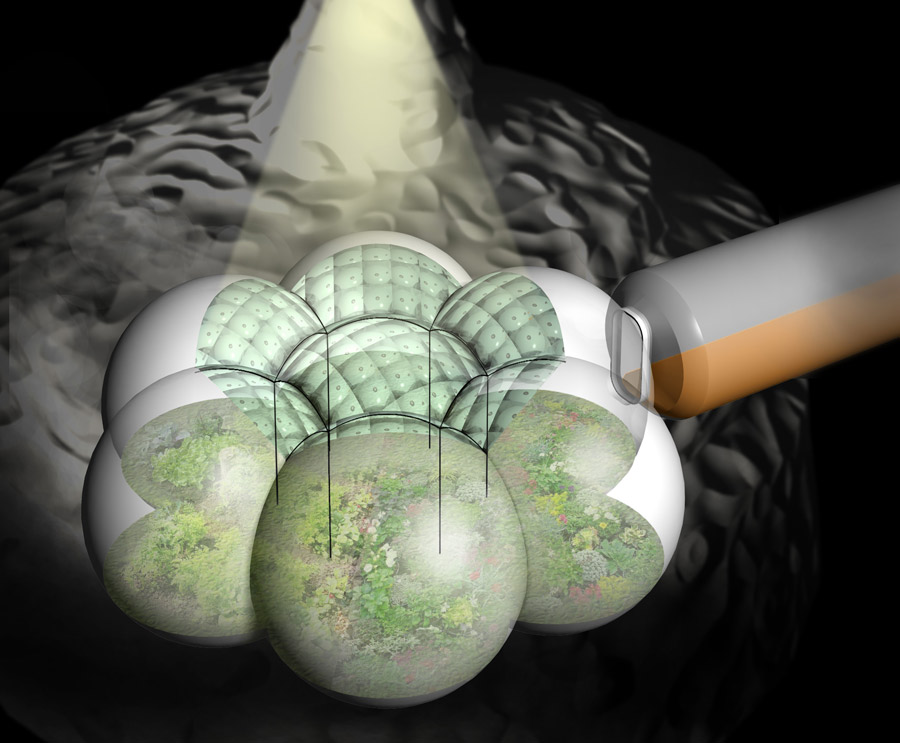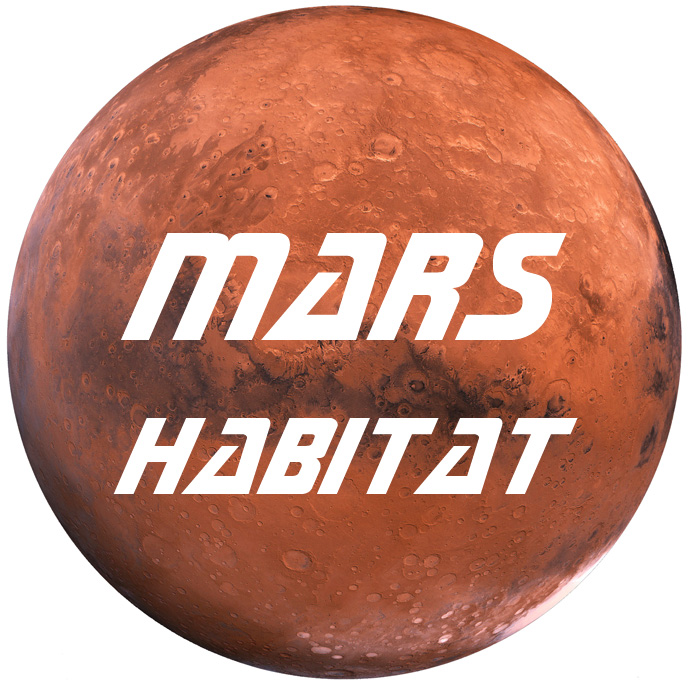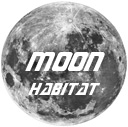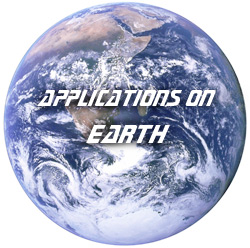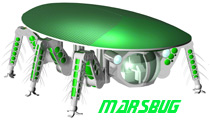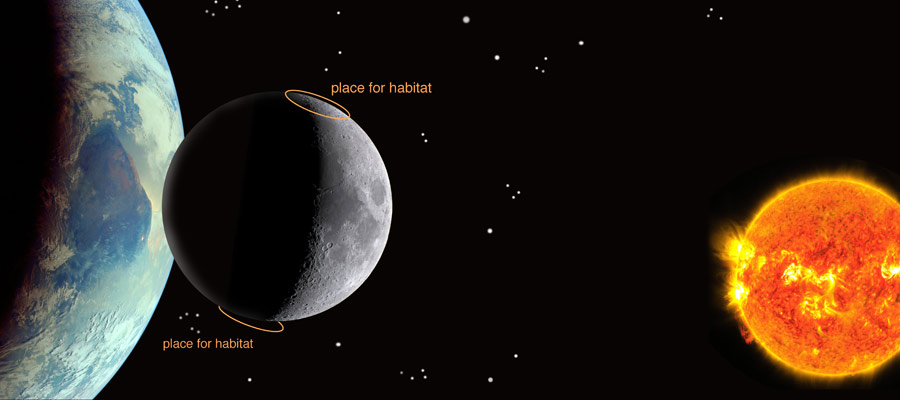
Moon Habitat
Lunar habitat design study funded by ESA ( European Space Agency) OSIP program.
This lunar habitat is located in the close vicinity of one of the lunar poles in places where sunlight is almost permanently available.
The habitat will operate self-sufficiently in the long term by producing and recycling its own oxygen and food inside large greenhouses and exclusively by using solar irradiation power.
The concept features the combination of:
Prefabricated ultra-light inflatable structures
Covering the inflated structure with a 4 -5 meters thick layer of local loose regolith or efficient protection from extreme temperature, meteorites and cosmic radiation.
The use of mirrors that rotate towards the sun and bring visible sunlight into the greenhouses
On top a hyperbolic truss frame tower holds a mirror membrane that reflects the horizontally arriving sunlight down into an artificial crater, where another cone-shaped mirror directs the sunlight into the toroidal greenhouse. The tower is based on a circular magnetic rail and rotates to follow the direction of the sun light. In order to simulate night, the mirror is simply turned away from the sun for 5-6 hours within every 24hours cycle
Find more information on the new website: https://moonhabitat.space
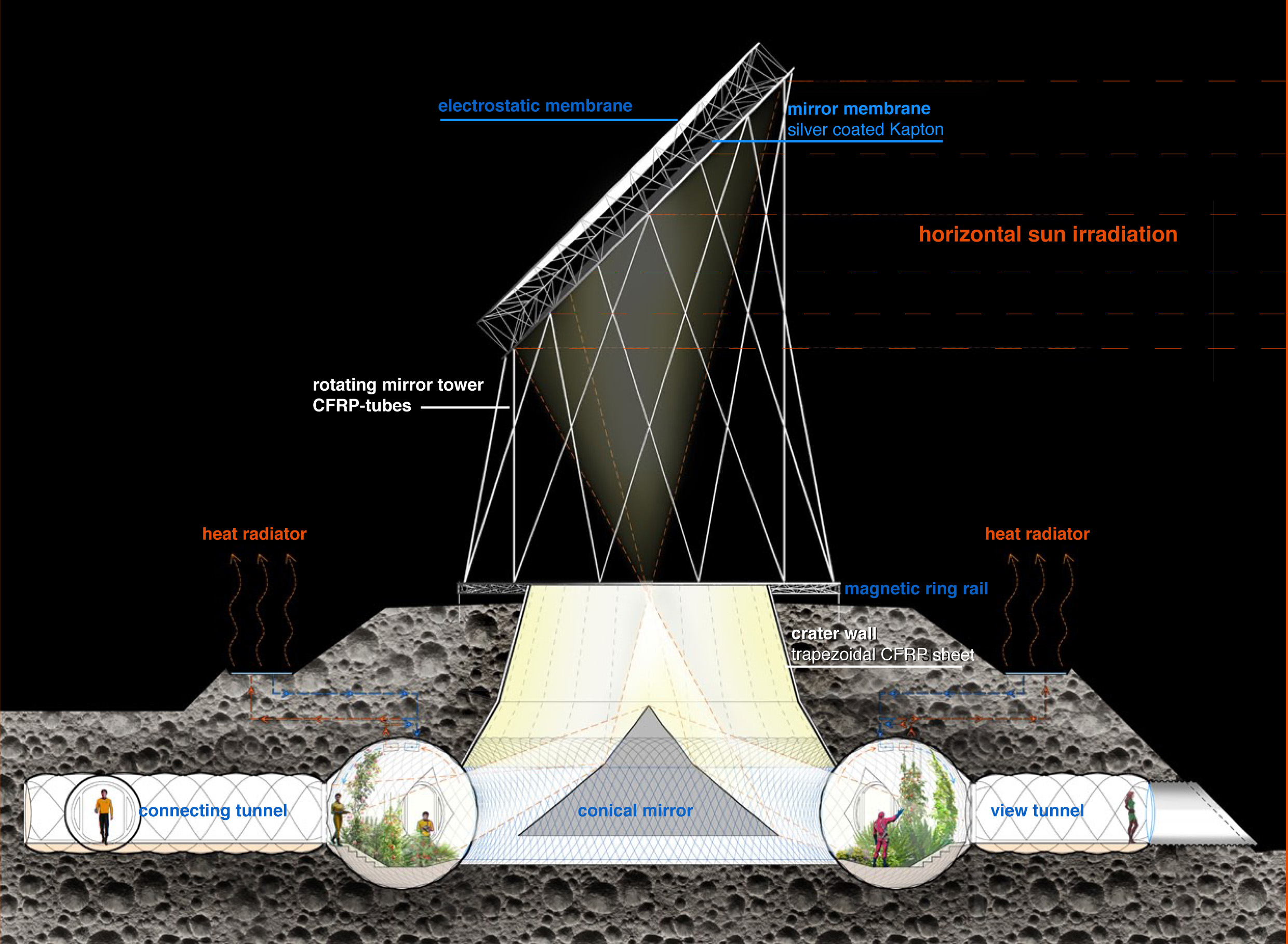
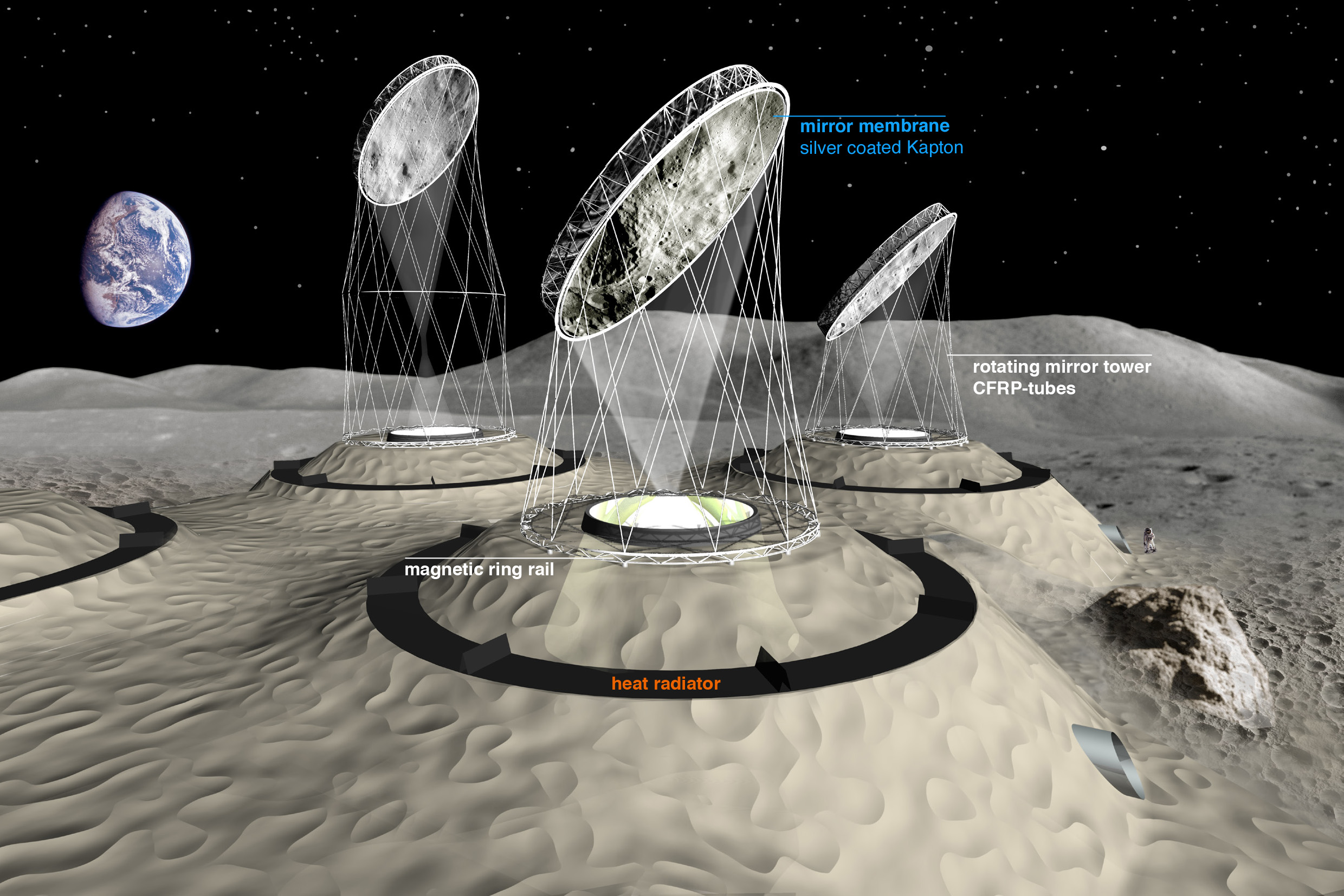
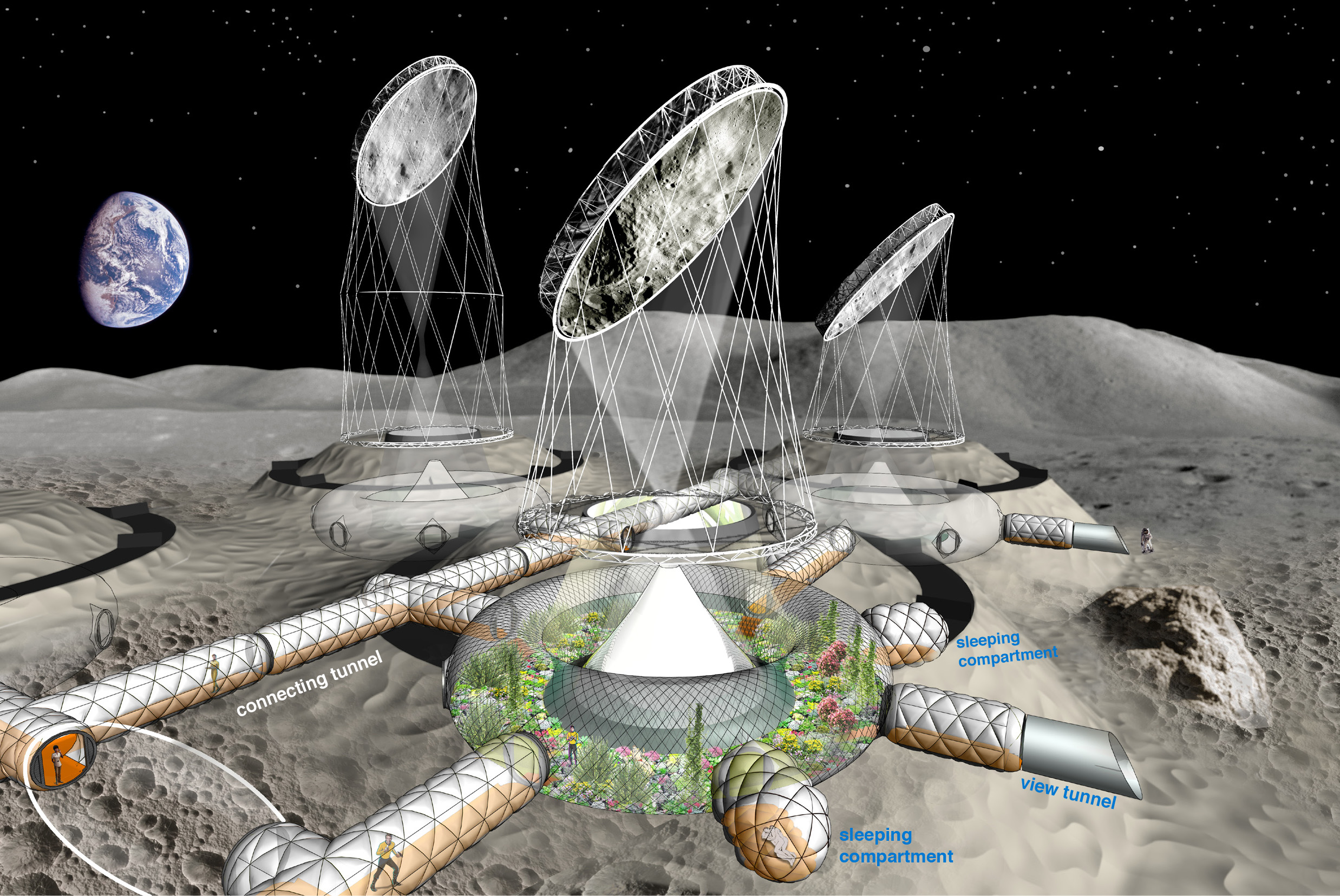
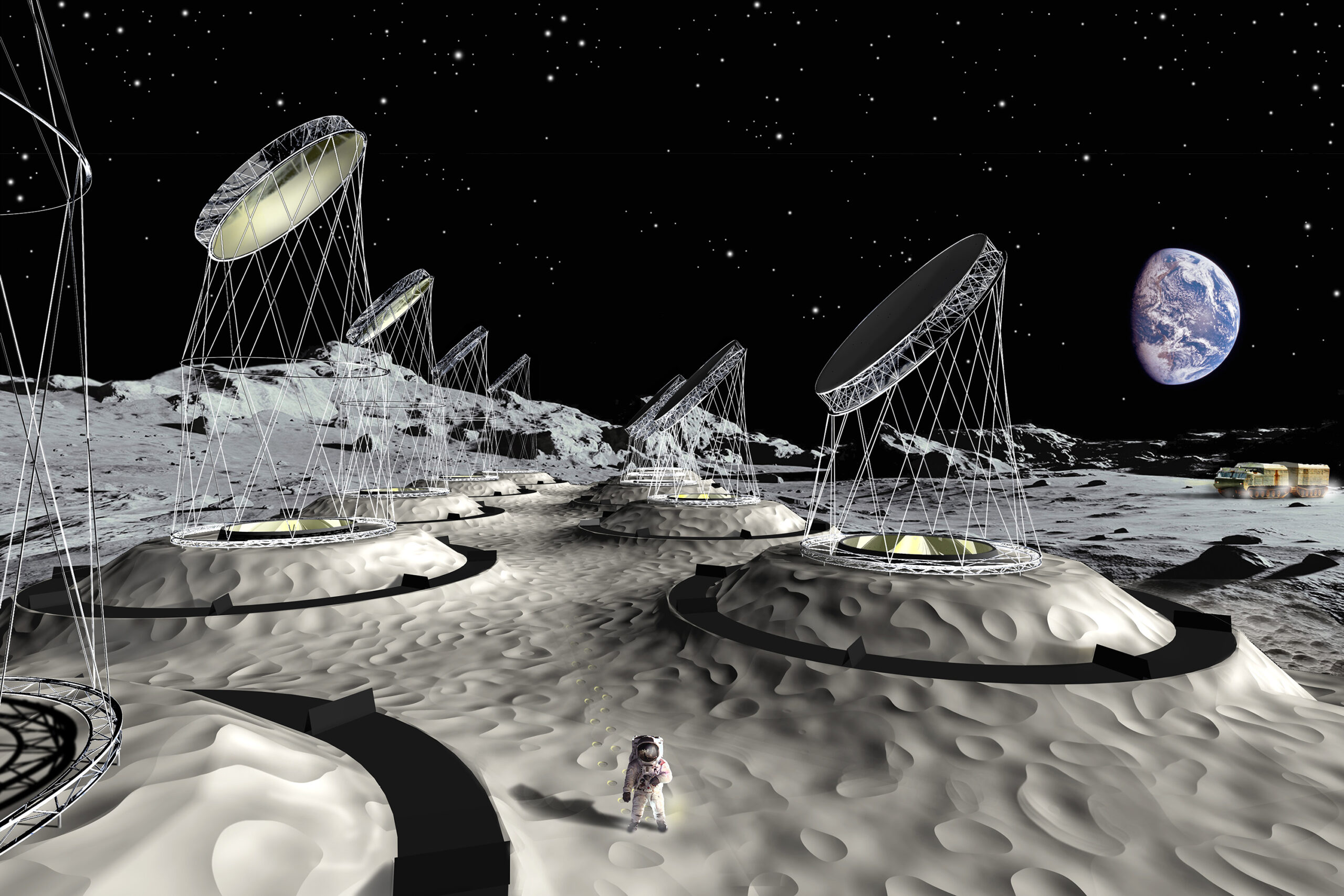
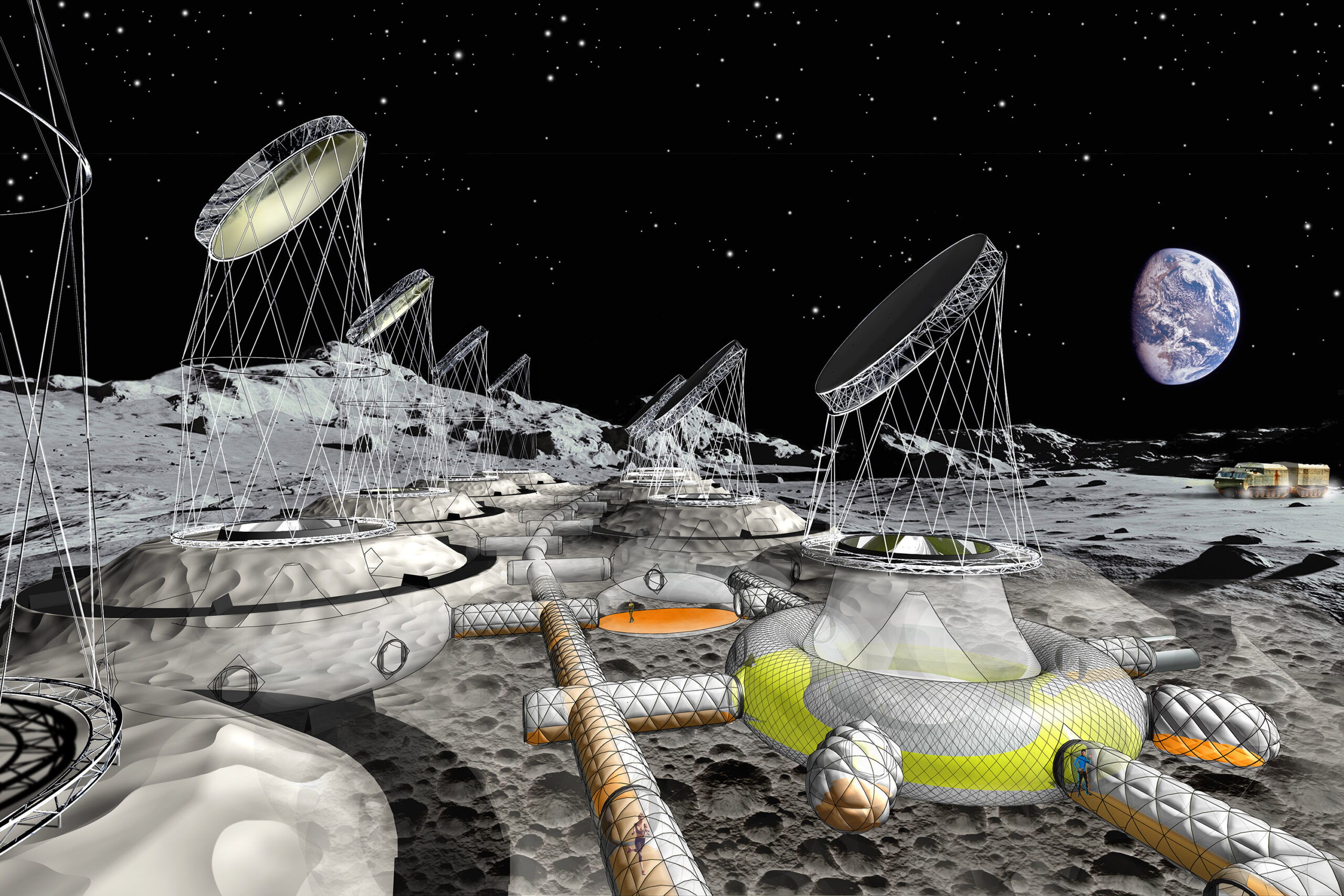
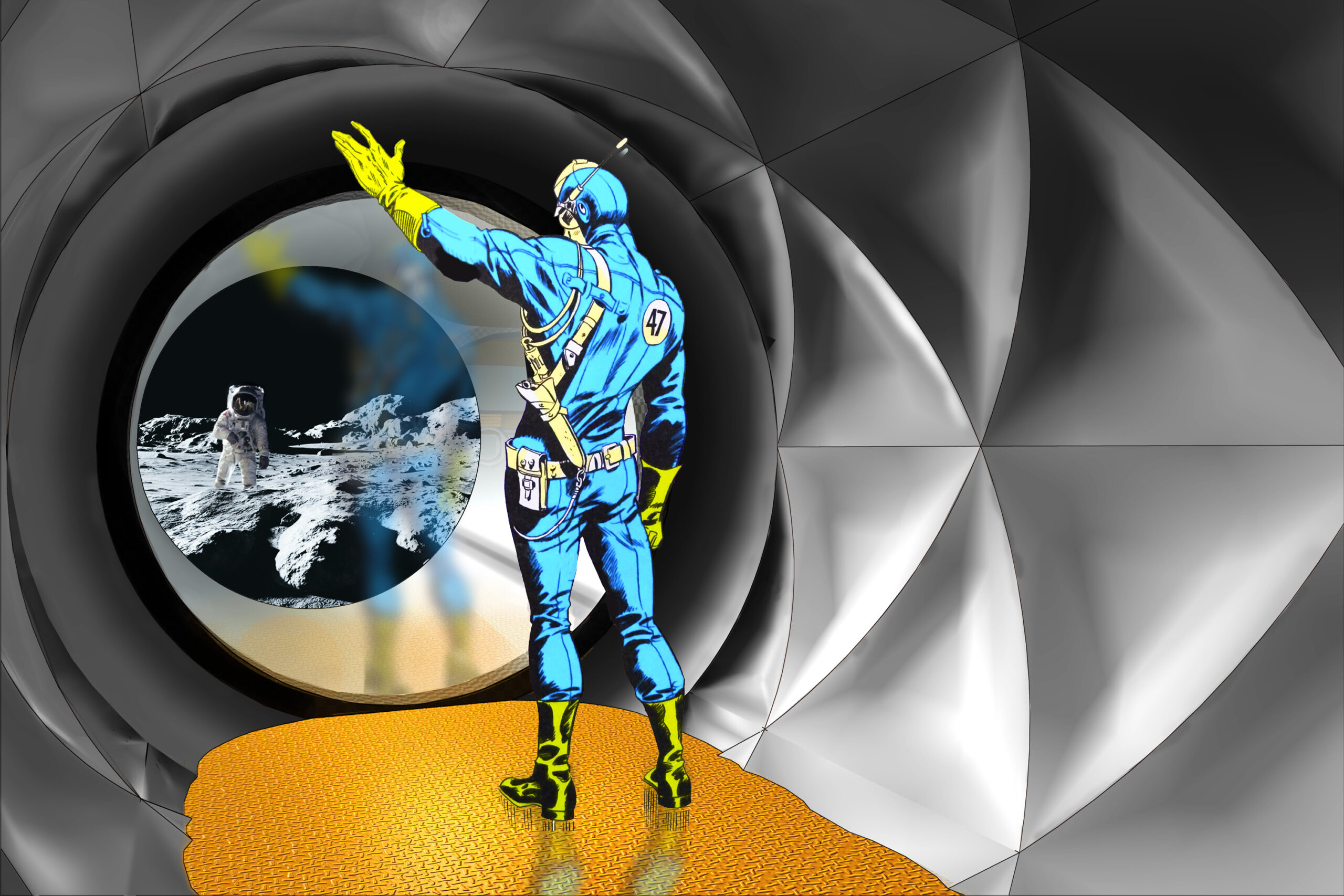
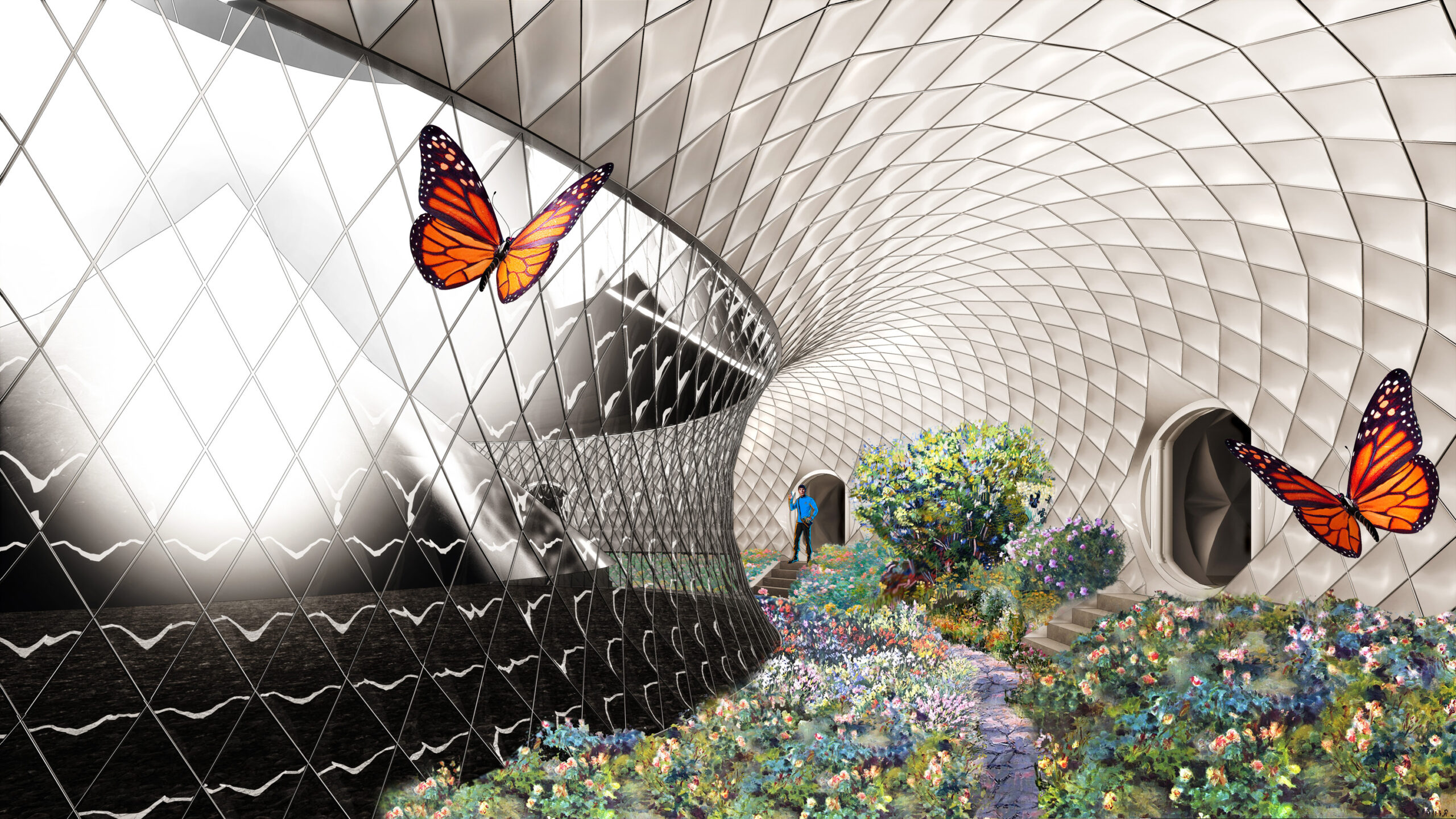
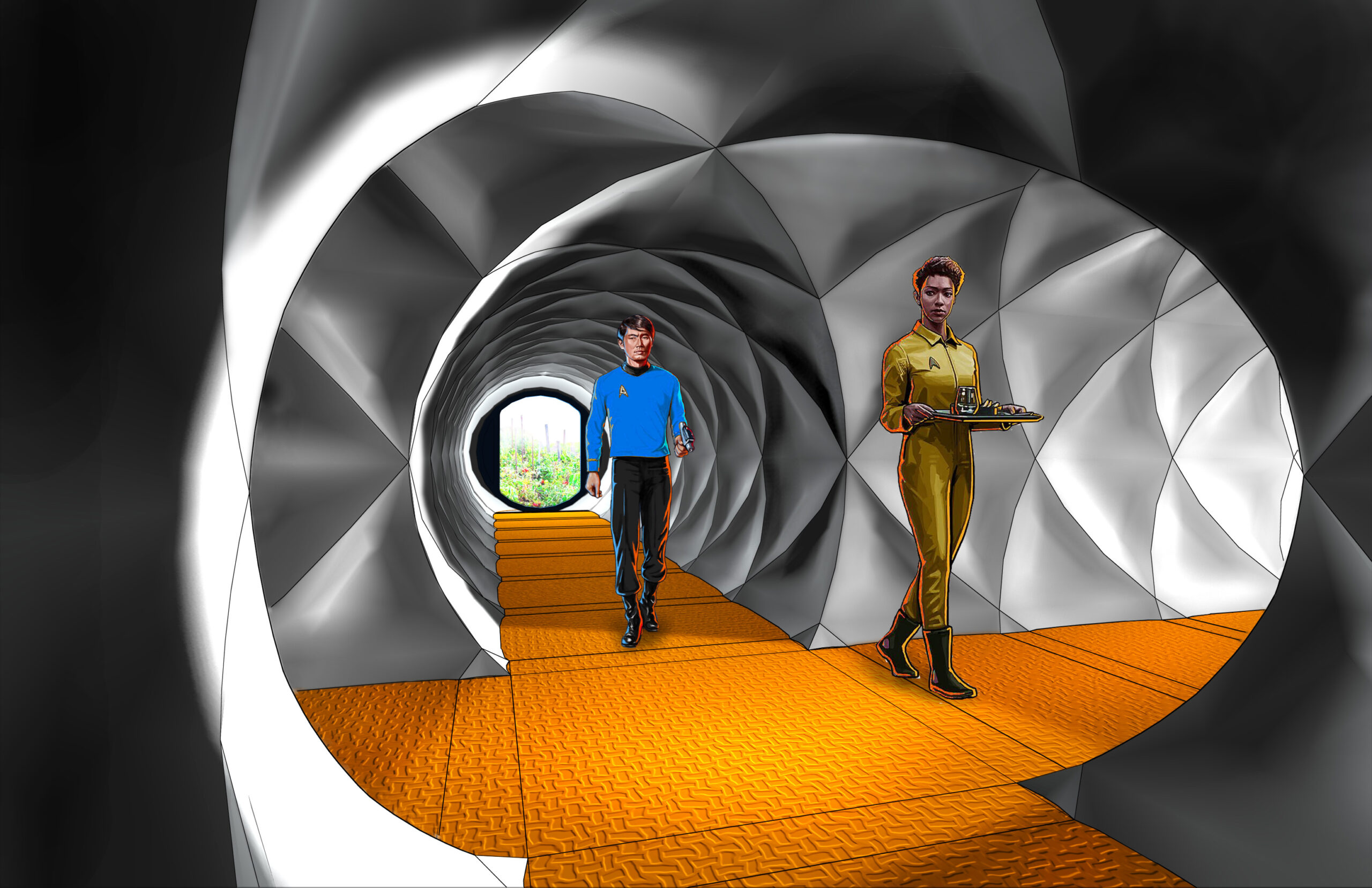
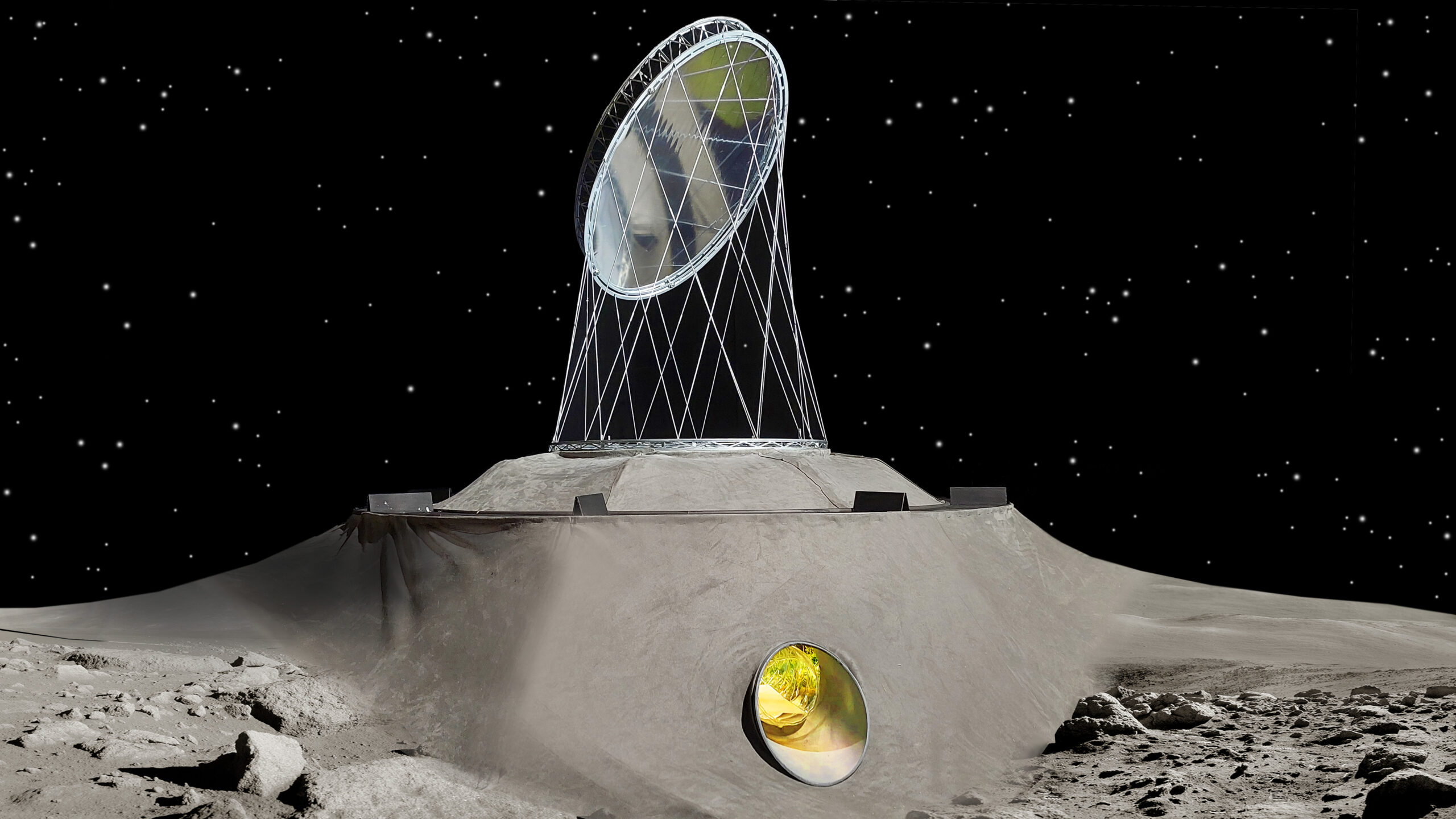
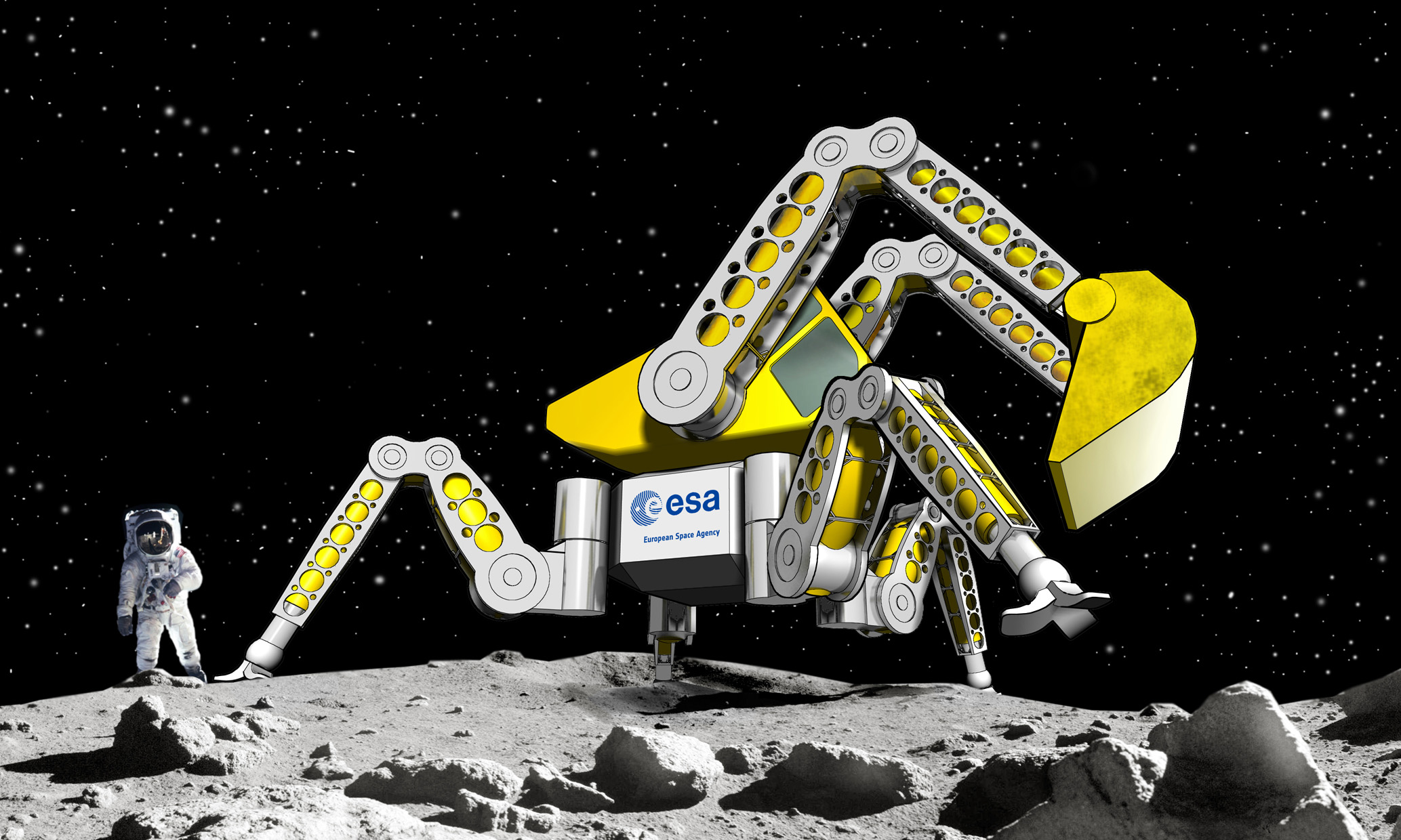
Moonhabitat version inside a Lava Cave. These caves provide good protection against radiation and meteorites, but they are dark.
An inflatable parabolic mirror in a synchronized rotation with the Sun reflects sunlight through the shaft into the cave and into the inflatable building. Sunlight is permanently available, 24 hours per day, for growth of plants and keeping the temperature inside at a convenient level. In the vacuum on moon no heat can be transmitted or convected from the inflatable building. Just the heat radiation remains.
